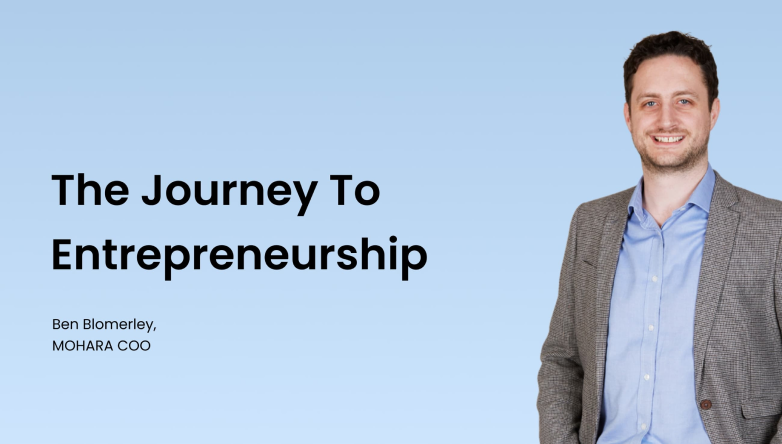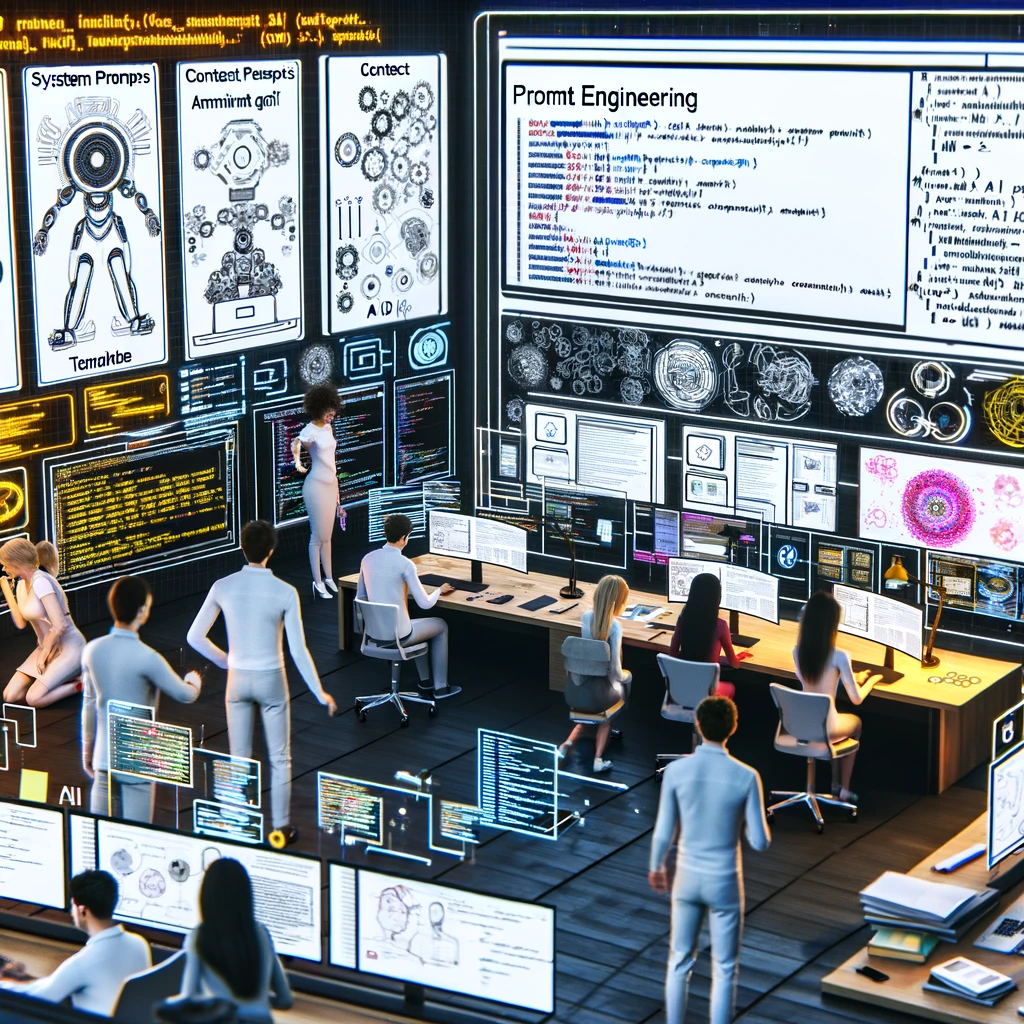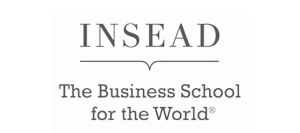The road to becoming an entrepreneur can be one filled with uncertainties and challenges.
However, despite the challenges, being an entrepreneur can be extremely rewarding. Entrepreneurs are able to execute their creative visions, building businesses with the potential to change the world for the better.
We’ll be taking a look at the journey of Ben Blomerley, MOHARA’s COO – how he came to be an entrepreneur, the challenges he faced and his learnings along the way.
What made you think you should become an entrepreneur and start your own business?
Originally, I had been looking at going into banking. I would go to interviews and people would always say, “You’ve got the skills, you know how to do this – but you don’t want the job”. Over time, I realised it too. I didn’t want the job. I wanted to build and create something. That clarity and realisation made me recognise I either needed to start my own business or work in a smaller business.
Where did you start your journey as an entrepreneur?
I built out my first initiative while working in India for EY. I launched a forum for international finance companies based there, working with connections I had at the British and US Consulate. Before that, I had a very normal corporate life.
Entrepreneurship can come in many different flavours. People tend to think you need to have your own idea and be an extrovert to be an entrepreneur. In reality, the first startup I worked on was an idea of a friend of mine, Kevin O’Sullivan, who I knew from INSEAD. He came up with this idea during one of our classes and it just resonated with me. That is where it all started.
Understanding the role I could take on in a startup was another key part of my journey. I realised quite early on, I’m not so much the idea person and more the executor. The Entrepreneurial Operating System (EOS) is a tool we use at MOHARA, based on a book called “Traction” by Gino Wickman. I naturally take on the “Integrator” role – the person who makes things happen.
What challenges did you have to overcome at the beginning of your journey?
There were loads of challenges to be overcome. A business always does three basic things:
You’re building out an idea, taking it to market and selling it to potential customers, while financing it. Underpinning all of that, you’ve got a mindset of learning and grit to optimise your business.
If you’re running a business on your own, as I was in the very early days, you have to learn how to build, sell and finance your business. If you don’t already have the skills to do any of those, it requires a lot more grit and determination to keep going forward. There are so many things to learn about what you are going to do. How will you get your product to market? How do you sell it? What kind of marketing strategies do you use? What channels will you use to make people aware of your product?
Overall, while you are waiting for money to come in from sales, you need to learn how to fund your business growth. You’ve got to learn how to raise venture capital funds and how to structure funding, among many other things.
Where does your ambition come from? What is driving you?
I believe it is an element of wanting to succeed and desiring to use the gifts or skills that I’ve got. One of the most unfortunate things is watching someone squander their brains and talents. I think everyone has the responsibility to make the best of what they’ve got skill-wise.
Growing up, there were a lot of good and not-so-good role models around. My uncle helped me out a lot when I was younger and he set me on the path of being an accountant. Though that perhaps wasn’t the best driver for being an entrepreneur! I think that rebellious streak came from my brother as a role model.
Knowing what you know now, is there anything you would have done differently when you were first starting?
It’s been eleven years since I started working with startups. Having worked on my own startup, MOHARA, as well as the thirty businesses we’ve invested in, and the forty additional products we built on-site, I could find many things.
1. One of the key things is to understand yourself and the roles that you are good at. There are many roles in a startup, not just CEO or founder.
2. I like simple models to understand things. Sometimes, you end up twisting yourself into knots trying to create complex models, while the most simple things are right in front of you. For example, a simple model of build-sell-finance shows that you need somebody good at building something, somebody who’s good at selling and also one who’s good at financing. It’s very rare to find all things in one person. And so, creating a team and finding out what the best team could look like, is super important. Looking at many businesses, big or small, they’ve all got integrators and visionaries working together to come up with big ideas and execute them. It doesn’t mean that integrators can’t have ideas or that visionaries can’t build something. It is about getting the right people in the right place, and doing the right things with the right capabilities to do it.
3. Focus on solving problems, and decision-making. Decision-making at the right levels, with the correct authorities, is crucial to get things moving. You can’t have the whole board in business discussing a £50 problem, whereas you can’t have one person on their own, struggling with a £5 million problem. Consider what the right authority levels are and who you can delegate authority to, to get decisions made.
You went to INSEAD and graduated with your MBA in 2011. What was the experience like and what does your role as an Entrepreneur in Residence (EIR) at INSEAD entail?
It was a phenomenal experience – really transformative for me. I loved it and made great friends. I could go anywhere in the world and find someone who’s been in my class.
Going to business school is an expensive undertaking. Some of the questions I get asked are what you can expect to get from the education. It is a generalist education and it is important to know if that is going to be valuable for you in the work you want to do. For me, it was. I was coming from specialist accountancy and that helped me connect a lot of dots.
Secondly, INSEAD provided me with a network. I grew up in a small town in northern England, part of a not particularly well-off family. I didn’t have a network when starting. Some things are more subtle, like somebody who worked in a place that you would never have dreamt of, whether that’s with a big corporate or pushing boundaries on ideas – it opened my horizons of what could be possible.
I started going back to the INSEAD campus in 2016-2017, giving talks to current students about my journey as an entrepreneur from INSEAD, and how students could maximise their time while in school to test their ideas or see whether entrepreneurship was right for them. I was then invited to become an EIR and also became an early-stage judge at the INSEAD Venture Competition (IVC).
In my role as an EIR, it’s all about giving advice and perspective to would-be founders going on their entrepreneurial journey. It ranges from giving prospective entrepreneurs real-life coaching about career choices all the way through to providing detailed advice to people who are building products.











